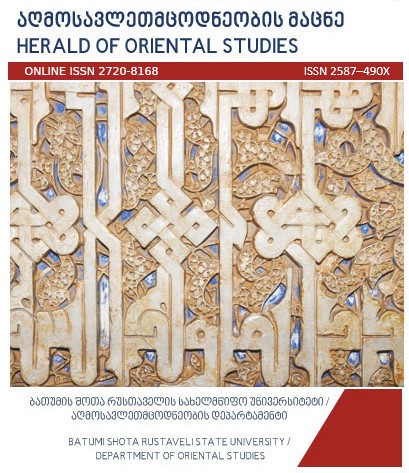ტრადიციულ ღირებულებათა ახალ რეალობასთან ინტეგრაციის ზოგიერთი ასპექტი პოსტტოტალიტარულ ბათუმში
Some aspects of traditional values integration into a new reality in post-totalitarian Batumi
Author(s): Manuchar Loria, Tamila LomtatidzeSubject(s): Cultural history, Ethnohistory, Social history, Islam studies, Culture and social structure , Pre-WW I & WW I (1900 -1919), Interwar Period (1920 - 1939), WW II and following years (1940 - 1949), Post-War period (1950 - 1989)
Published by: ბათუმის შოთა რუსთაველის სახელმწიფო უნივერსიტეტი, ჰუმანიტარული მეცნიერებატა ფაკულტეტის აღმოსავლეთმცოდნეობის დეპარტამენტის „ელექტრონული ჟურნალი“.
Keywords: Tradition; Innovation; Internal Migrations; Islam; Adaptations; Integration;
Summary/Abstract: Globalization, rise of urbanization tendencies, standardization of living, breakage of traditions caused irreversible changes of ethno cultural elements. Due to historical peculiarities, mountainous village of Ajara presented a closed, less changeable, tameness-oriented space. Such barriers were broken in post- totalitarian period. Economic instability and decrease of living standards caused and promoted migration processes amng village population. The modern political, social-economic and cultural-religious processes put Batumi (which traditionally represented the platform for meeting and cohabitation of different ethno cultures and religious confessions and characterized with diversity and synthesis of religious beliefs and cultural values) to the epicenter of the changes. The ethno confessional picture of Batumi, in line with other factors, was significantly changed by the internal migration processes, increased in Ajara after the Soviet collapse. The paper presents the analysis of the problems and strategies of adaptation of migrated population in new social-cultural conditions.
Journal: საერთაშორისო სამეცნიერო ჟურნალი „აღმოსავლეთმცოდნეობის მაცნე“
- Issue Year: 3/2020
- Issue No: 1
- Page Range: 122-133
- Page Count: 12
- Language: Georgian

